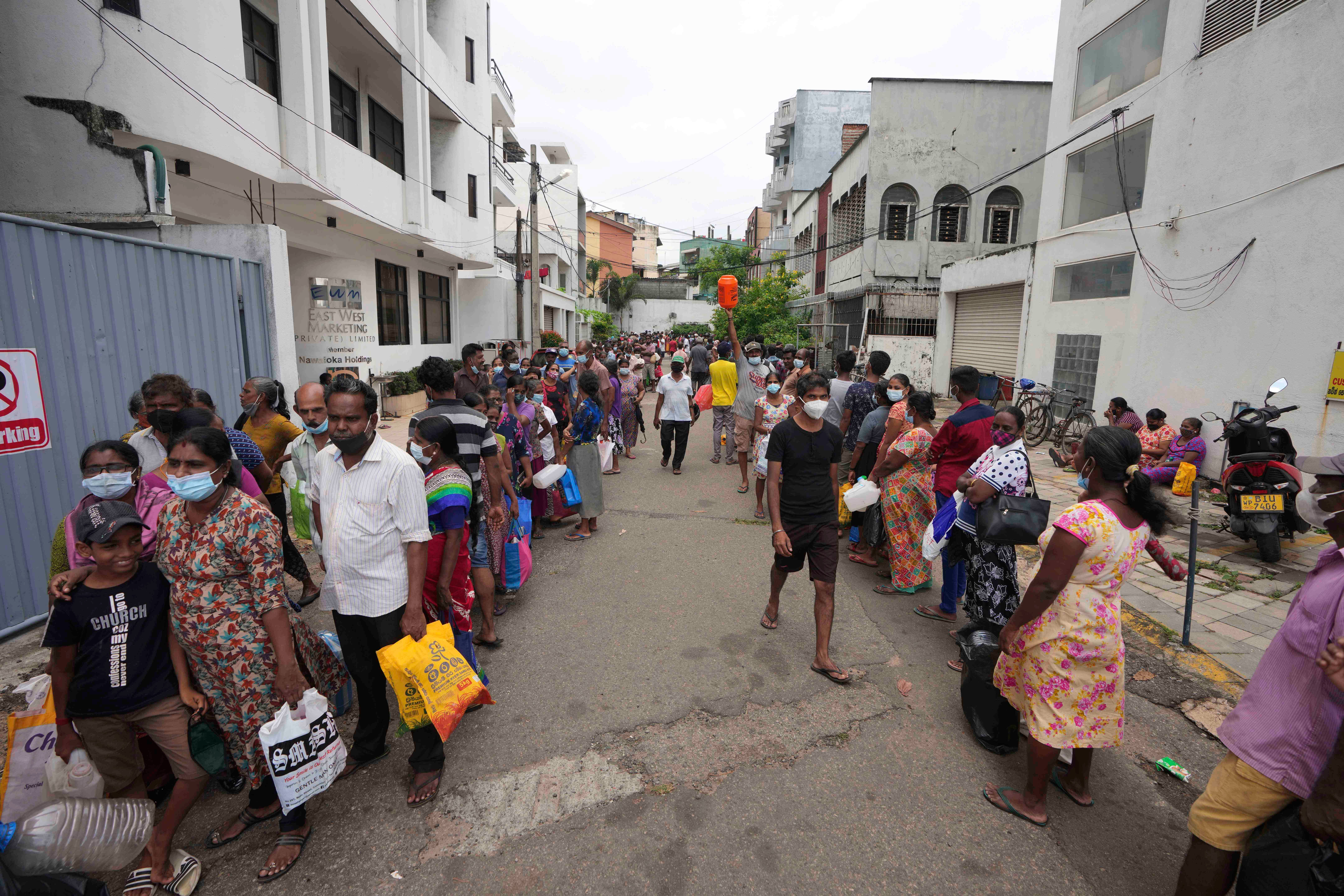Sri Lanka's prime minister invites protesters for talks
Sri Lanka’s prime minister has offered to meet with protesters occupying the entrance to the president’s office, saying he would listen to their ideas to resolve the economic, social and political challenges facing the country

Your support helps us to tell the story
From reproductive rights to climate change to Big Tech, The Independent is on the ground when the story is developing. Whether it's investigating the financials of Elon Musk's pro-Trump PAC or producing our latest documentary, 'The A Word', which shines a light on the American women fighting for reproductive rights, we know how important it is to parse out the facts from the messaging.
At such a critical moment in US history, we need reporters on the ground. Your donation allows us to keep sending journalists to speak to both sides of the story.
The Independent is trusted by Americans across the entire political spectrum. And unlike many other quality news outlets, we choose not to lock Americans out of our reporting and analysis with paywalls. We believe quality journalism should be available to everyone, paid for by those who can afford it.
Your support makes all the difference.Sri Lanka's prime minister on Wednesday offered to meet with protesters occupying the entrance to the president's office, saying he would listen to their ideas to resolve the economic, social and political challenges facing the country.
The protesters were camped out for a fifth straight day demanding the resignation of President Gotabaya Rajapaksa, the head of state, holding him responsible for the country’s worst economic crisis in decades. They also call for his powerful ruling family to step down, accusing them of corruption and misrule.
Prime Minister Mahinda Rajapaksa, the president's older brother, said he is “willing to talk to" representatives of the protesters gathered near the president's office in the capital, Colombo, according to a statement signed by his media secretary.
Sri Lankans in recent months have endured fuel and food shortages and daily power outages. Most of those items are paid for in hard currency, but Sri Lanka is on the brink of bankruptcy, saddled with dwindling foreign reserves and $25 billion in foreign debt due for repayment over the next five years. Nearly $7 billion is due this year.
Sri Lanka announced Tuesday that it is suspending its repayment of foreign debt, including bonds and government-to-government borrowing, pending the completion of a loan restructuring program with the International Monetary Fund.
The finance ministry said the IMF has assessed Sri Lanka’s foreign debt as unsustainable, and that staying current on foreign debt payments is no longer a realistic policy.
In addition to seeking help from the IMF, the government has turned to India and China for help in dealing with shortages.
Sri Lankans have been forced to wait in long lines to buy cooking gas, fuel and milk powder, and doctors have warned there is a catastrophic shortage of essential drugs in government hospitals.
Much of the anger expressed in weeks of protests has been directed at the Rajapaksa family, which has held power for most of the past two decades. Critics accuse the family of borrowing heavily to finance projects that have earned no money, such as a port facility built with Chinese loans.
Mahinda Rajapaksa in a speech Monday sought to reassure people that the government is working to resolve the country’s financial problems.
However, he refused to yield power, saying the governing coalition will continue to rule Sri Lanka because opposition parties rejected its call for a unity government.
The crisis and protests prompted many Cabinet members to resign. Four ministers were sworn in as caretakers, but many of the key government portfolios are vacant.
Parliament has failed to reach a consensus on how to deal with the crisis after nearly 40 governing coalition lawmakers said they would no longer vote according to coalition instructions, significantly weakening the government.
But with opposition parties divided, they have been incapable of forming a majority to take control of Parliament.